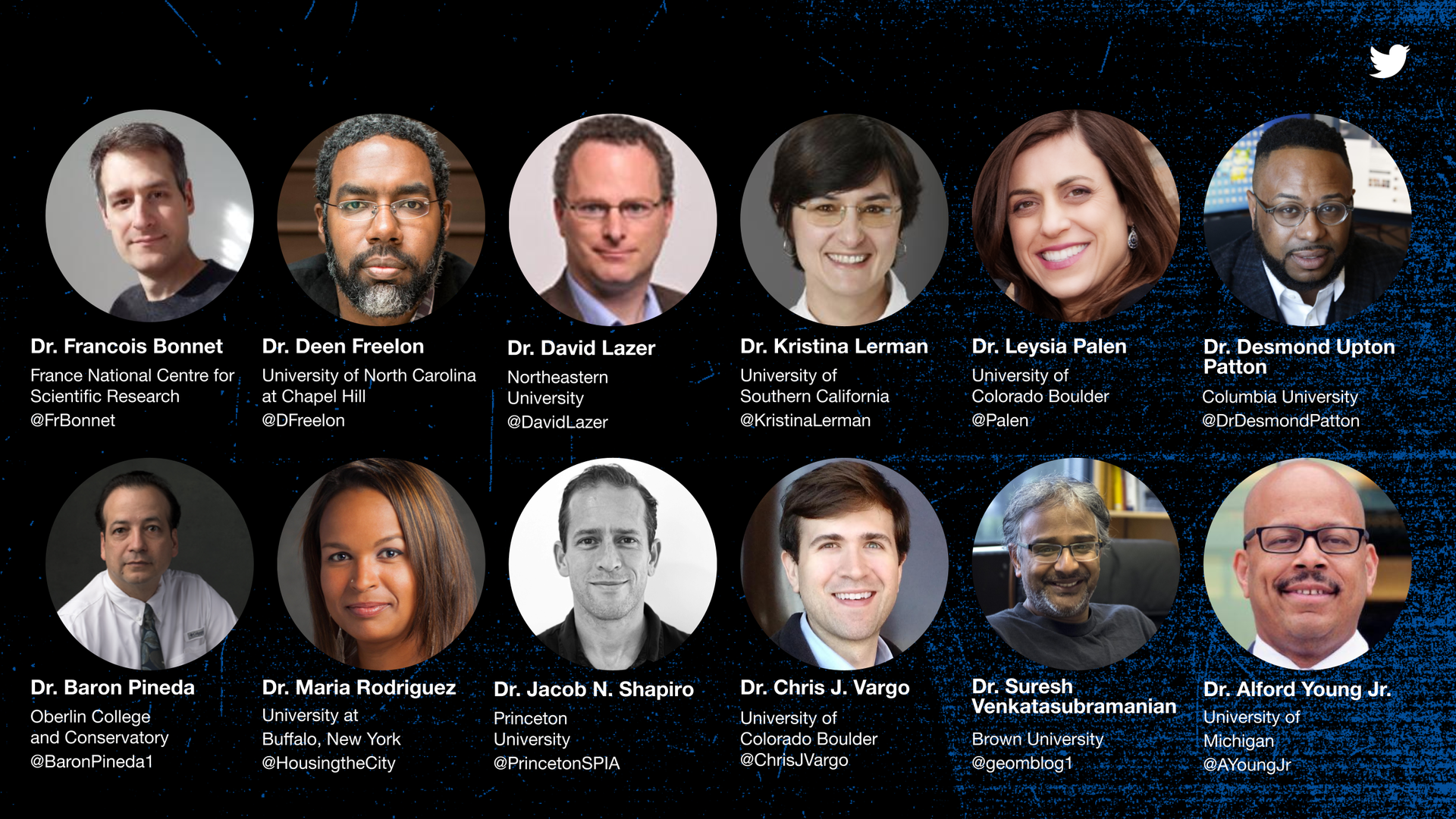Community
Introducing the Developer Platform’s Academic Research advisory board
By Nathalia 27 August 2021
By Nathalia
27 August 2021

Academic researchers are one of the largest groups of people using the Twitter Developer Platform to understand what is happening in the world’s public conversation, and this number has only grown since the introduction of a specialized Academic Research product track at the beginning of this year. Now, we are taking steps to build more transparency and accountability in how the Twitter Developer Platform team serves the academic community.
Earlier this year, we launched an Academic Research advisory board, our first program designed to create regular and frequent dialogue between members of the academic community and the Developer Platform. The board is composed of prominent members of the academic community who volunteered to offer their expertise to impact the ways Twitter supports and builds products or programs for research with the Twitter API. In addition, since this is the Developer Platform’s first external advisory board, this initial group plays an important role in helping define how this board can advance shared goals between the academic community and the Twitter Developer Platform going forward.
Introducing our first Academic Research advisory board

What the Academic Research advisory board will do
The advisory board model was designed to play a defining role in how Twitter, and the Developer Platform specifically, invests in supporting the academic community. They have been invited to a variety of internal meetings, given opportunities to review the Twitter Developer Platform’s proprietary projects in planning phases, and introduced to product alphas/betas that can benefit researchers. In the near future they’ll also contribute to internal workshops with the Developer Platform, sharing critical external expertise that will better inform what, and how, our teams build.
For the first-year pilot of this program, the Academic Research advisory board will focus on:
- Advising on the benefits, concerns, or risks around new product and program developments for academic research with public data from Twitter
- Advising how Twitter can increase the diversity and number of researchers who can leverage public Twitter data in their studies
- Advising on opportunities to share more knowledge across different disciplines and to amplify academic research work
To begin, this inaugural board is based out of the United States, and was built to represent a range of academic disciplines and expertise, tenure, backgrounds, and locations. This program must continue to intentionally seek out diverse, inclusive perspectives, so this board will also help decide how the board nomination and selection process might work moving forward. As a next step, we hope to open this program to more researchers around the world who can represent more global points of view.
If you’re interested in learning more about how we’re planning to incorporate feedback from different communities into our work, be sure to follow us on @TwitterDev. We’ll share more soon about how developers, researchers, and businesses can get involved.
Frequently asked questions
Q: How long do Academic Research Advisory Board members serve?
A: Currently, advisory board members are engaged for a full year before some members may choose to rotate off the board or recommend new board members.
Q: Are the Academic Research Advisory Board members paid?
A: Advisory board members are volunteers who are not employed or compensated by Twitter.
Q: Will the Twitter Developer Platform make changes to its products as a result of the board?
A: We are always making changes and improvements to our products, and the feedback we receive from this board, along with other research and feedback methods we have, will all be considered for future product solutions for academic researchers.
Q: Can I participate in an advisory board for Twitter today?
A: Not at this time. We are working with our Academic Research Advisory Board to define our plan for adding or changing board members for academic research. We hope this will help pave the way for a future with more committees and advisory boards for other developer groups on our platform, such as businesses or independent developers.